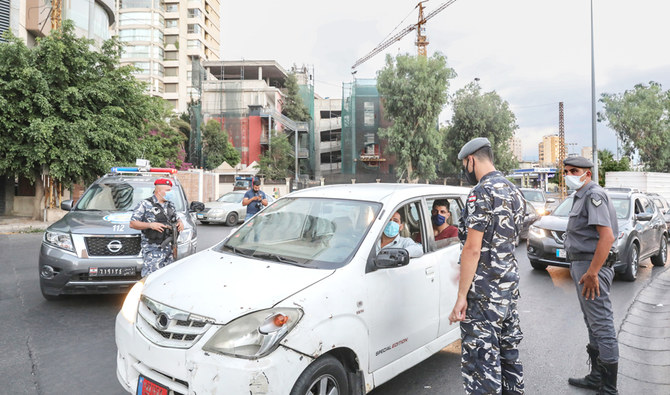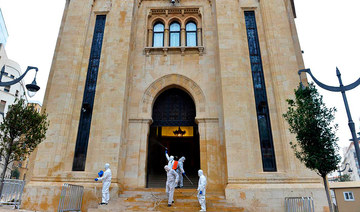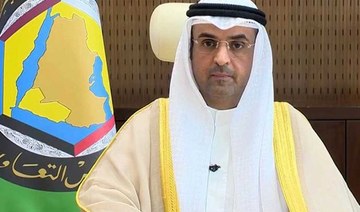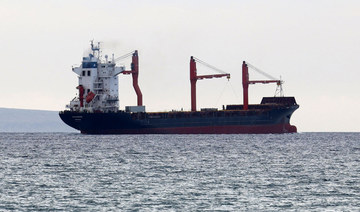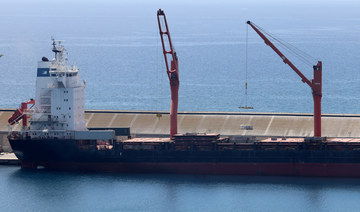BEIRUT: Lebanon’s total number of COVID-19 patients has exceeded 20,000, with the country’s health minister on Monday describing the situation as “delicate and in need of full awareness by all citizens.”
About 12,753 COVID-19 patients were registered during August, while 3,118 cases were registered during the first week of September.
The number of COVID-19 patients whose source of infection was unknown has exceeded 4,000.
Health Minister Hamad Hassan said: “It is the duty of the state to protect society with its health security, and society must respond to the instructions of the Ministry of Health and adhere to wearing masks, hygiene, and instructions issued by the government.”
Many official departments were closed at the weekend in Lebanon for sanitization operations after coronavirus was detected among employees.
Foreign Ministry staff underwent polymerase chain reaction (PCR) tests after a COVID-19 case was found among them. A retirement home in Beirut’s Ain El-Remmaneh area has recorded infections among the elderly and the staff caring for them.
“It is not easy,” added Hassan. “There are a lot of cases in Lebanon and, unfortunately, there are some deaths. Hence, I ask that precautionary and preventive measures be taken seriously, as all the mobilization and emergency laws are not important if we do not take the measures absolutely seriously.We must be responsible and not transmit the infection to our nearest members of the family.”
The ministry is equipping government hospitals in areas far from the capital with the requirements for receiving coronavirus patients, while private hospitals are working to raise their preparedness in terms of providing intensive care beds and regular beds for COVID-19 patients.
Hassan rejected speculation about the results of PCR tests issued by laboratories accredited by the ministry, and urged people not to “question or underestimate” the pandemic.
Municipalities are monitoring infected people and tracking their condition. They have also resorted to isolating villages until infected people recover to prevent the transmission of the virus to others.
The country’s dire economic situation has, however, prevailed over the preventive measures taken to combat the virus. Restaurants, cafes and bars have resumed activity and security measures are lax in pursuing those breaking COVID-19 procedures by not wearing face masks.
Abdul-Rahman Al-Bizri, an infectious diseases specialist and member of the Health Ministry’s crisis committee, said that Lebanon’s rate of infections was relatively high and would continue to rise.
FASTFACT
Abdul-Rahman Al-Bizri, an infectious diseases specialist and member of the Health Ministry’s crisis committee, says that Lebanon’s rate of infections is relatively high and would continue to rise.
“Unfortunately, people do not abide by the prevention instructions,” he told Arab News.
“The virus has a wide spectrum of symptoms; there may be no symptoms at all, and they can be simple symptoms such as a cold, and the symptom may be shortness of breath. The death rate among the infected elderly reaches 25 percent, but the total deaths in Lebanon since the beginning of the pandemic has so far not exceeded 1 percent, which is an internationally accepted percentage.”
He said that the total number of infected health workers in hospitals exceeded 500, which had led to disruption in some departments but had not stopped their work. Hospitals were still able to deal with staff infections, he added.
North Lebanon’s governor, Ramzi Nohra, said that everyone was supposed to adhere to preventive measures, including wearing face masks, maintaining public hygiene and social distancing, and that authorities were taking “all measures” to protect people, educate them and get them to follow ministry instructions.
The governor added: “However, the dangerous coronavirus began to multiply and spread in Tripoli and some northern regions. We hope that this pandemic will not become out of control and every infected person must adhere to quarantine. We will be on the lookout for all violators.”
Tripoli district recorded 43 new cases within 24 hours.
The governor of Baalbek-Hermel, Bashir Khader, said that the situation was still under control in the region despite the spread of the virus in many towns that had been isolated.
He attributed the spread to the indecisiveness of some municipalities in deterring violators of preventive measures, such as banning hookah smoking in cafes, to a shortage of municipal police personnel and also because of a sharp rise in temperatures, which recently exceeded 40 degrees and prompted people to abandon face masks.
Khader said: “Hospitals in the area are equipped to receive COVID-19 cases. No infections have been recorded among the nursing or medical teams yet, and we have adopted home quarantine for mild cases. In Baalbek-Hermel governorate, there are 250,000 Syrian refugees distributed into 120 camps, and we organized maneuvers with the High Commissioner for Refugees on how to deal with the spread of the virus in these camps and created quarantine facilities and the plan was activated.”
In Palestinian refugee camps, where the population density is very high and adherence to preventive measures varies, the UN Relief and Works Agency (UNRWA) announced that test results from the past few days showed 27 new cases of coronavirus.
There were 14 in Ain Al-Hilweh camp, including one of the agency’s employees, and 13 in Burj Al-Barajneh camp. A UNRWA staff member also tested positive in the central clinic in Beirut and is under home quarantine.
UNRWA has announced the closure of its health center in Ain Al-Hilweh camp and the central clinic in Beirut so they can be sterilized.




